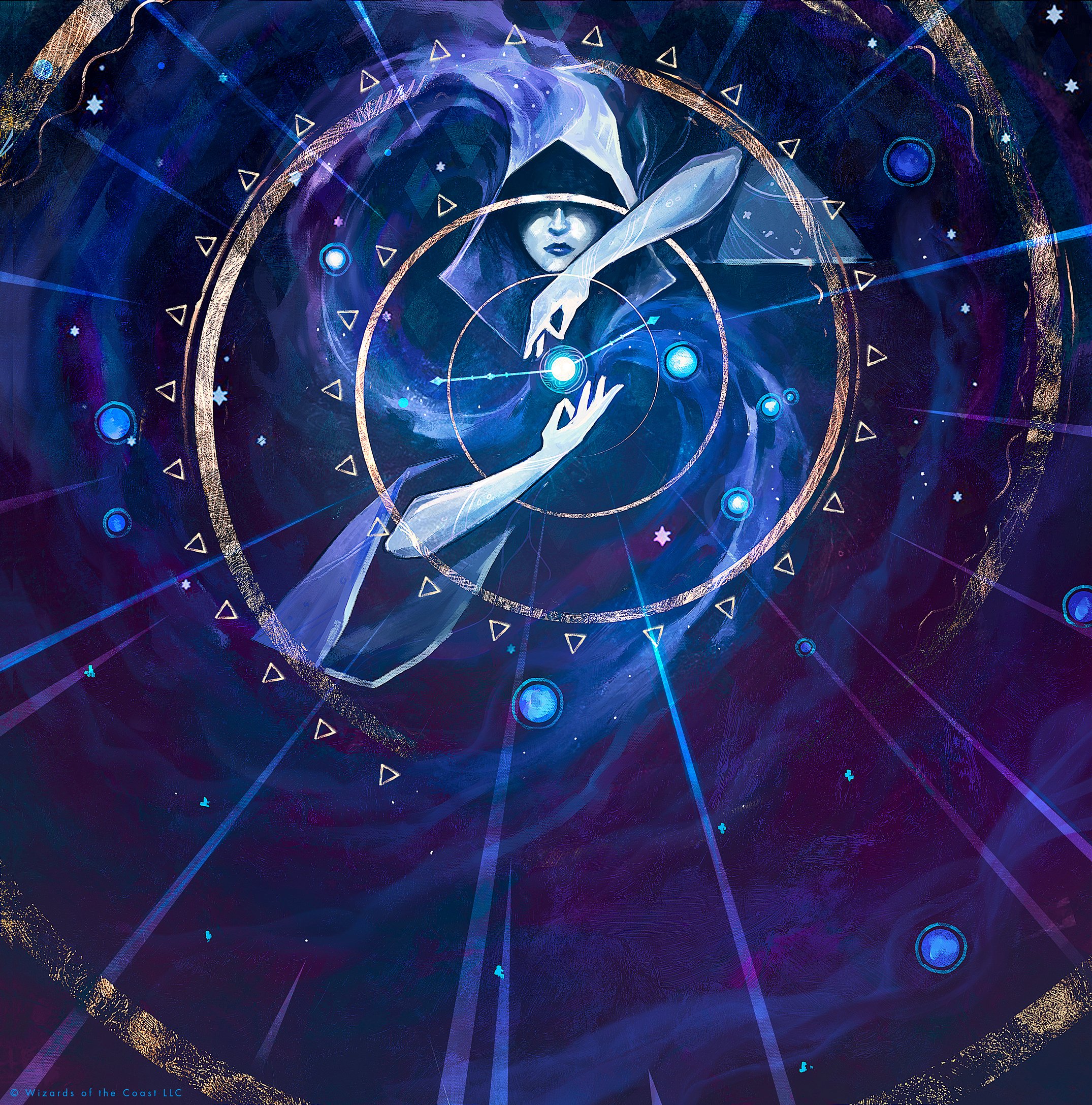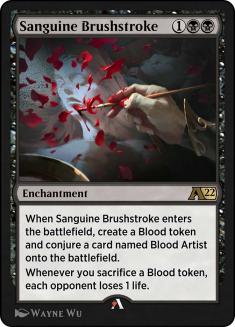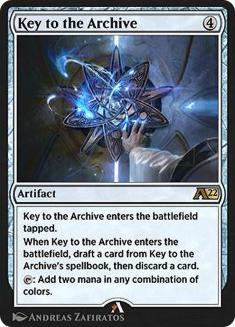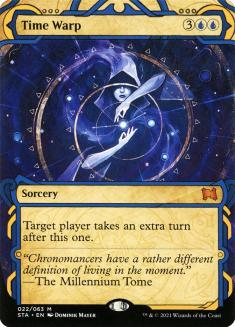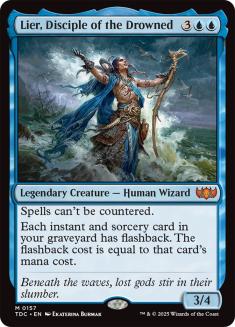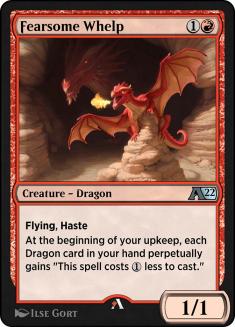Last month I shared some of my thoughts on Alchemy in an article, but held back some of my reservations as I wanted to give the format a chance.
Well, we’re a month into Alchemy being on Magic Arena, so I felt like it was time to circle back on those feelings and share them with you. Today we’ll be discussing some more of my likes and dislikes, and where the competitive metagame currently is.
Dislikes
*cracks knuckles*
How Alchemy Impacts Standard
Let’s start with the opinions I’ve been holding in for a month though. If you read my previous article on the subject, you’d know my thoughts on how this impacts Standard. The “tl;dr” is I’d accept pretty much any direction Wizards of the Coast (WotC) would take, but only if they took one.
As of right now, I’m a bit frustrated that nothing’s been done to fix the clear issues Standard has. I get that Standard doesn’t push the needle when it comes to tabletop sales, the main reason the format was created in the first place. I predict that, once we’re clear of this Covid-19 hellscape, the main formats being played will be Modern, Pioneer, and Legacy. Hell, I’m not even the “Standard Guy” anymore, as I’ve done way better in Historic than Standard in all of my MPL/Rivals events since the start of 2020. I don’t really care about the format.
That doesn’t mean it should be left for dead on Magic Arena when it’s clearly still used for competitive Magic qualifications and high-level tournaments like the Set Championships. It’s also just nice to have more formats to play when the others get stale. If Standard continues to have zero replayability thanks to the stranglehold Izzet Epiphany has on the format, then the options are unnecessarily limited.
Now, I have no idea how WotC should act when it comes to how Standard decisions impact Alchemy and Historic, but something needs to be done. I just can’t accept a reality where there’s no effort put in to balance Standard because “there are other formats you can play instead.” Kill it or fix it, but don’t ignore it.
Alchemy Is Unbalanced
This is a mild inconvenience as Alchemy and the design space are new, but it’s still discouraging. Alchemy feels like a completely different format thanks to the Alchemy: Innistrad cards, but the problems from Standard are still carrying over to the format. Simply put, the best decks in Alchemy are vastly better than the rest of the metagame.
Now if you look over tournament results, social media posts and articles about the format, you might think I’m out of my mind. The format actually looks extremely healthy with a ton of unique archetypes to choose from. I mean, that’s what I thought too when I started working on the format. It didn’t take long for me to realize that the surplus in options was simply an illusion due to the format not having any high-profile events to show just how limited you are in competitive options.
The best example of this is Esper Clerics. It won a 46-person DotGG event on MTGMelee, and is still currently the most winning deck on Untapped.GG. It also has the sweetest combo in Glasspool Mimic and Inquisitor Captain. Everything points towards this deck being absolutely amazing!
Creatures (36)
- 3 Orah, Skyclave Hierophant
- 4 Cleric of Life's Bond
- 1 Skyclave Apparition
- 4 Glasspool Mimic
- 4 Righteous Valkyrie
- 1 Professor of Symbology
- 4 Elite Spellbinder
- 4 Lunarch Veteran
- 4 Voice of the Blessed
- 3 Angel of Unity
- 4 Inquisitor Captain
Lands (20)
Spells (4)

It didn’t take long for me to realize this deck simply can’t beat one of the most popular Arena Ladder options: black stuff. Now when I say “black stuff,” I mean Sanguine Brushstroke strategies. Currently there are tons of variations on the strategy. Some are more creature-based, others lean on control elements like Blood on the Snow, and then there are all the Orzhov and Abzan variants as well. The relevant part here is that Sanguine Brushstroke is in all of them, and it’s an absolutely disgusting card.
Creatures (14)
Planeswalkers (2)
Lands (23)
Spells (21)

Sanguine Brushstroke is arguably the best Alchemy: Innistrad card. It produces three permanents upon resolution, all of which provide marginal lifegain. This makes it an absolute nightmare for creature strategies to get the final points of damage across when paired with sweepers like The Meathook Massacre and Blood on the Snow. That’s not even accounting for the times Cursebound Witch’s spellbook high-rolls Witch’s Vengeance! Seriously, it’s defensible to break your mouse anytime they Witch’s Vengeance your flush battlefieldd of Inquisitor Captains. I know I almost did a time or two!
It’s not surprising at all that decks like this are good in Alchemy. They were starting to take over Standard as well until we realized the true monster of the format was Izzet Epiphany. These decks quickly got pushed out of the Standard metagame. In Alchemy, though, Izzet Epiphany isn’t a competitive strategy, and black-based decks have way more tools to play with as well!
So yeah, these Sanguine Brushstroke decks have completely pushed me off of playing Esper Clerics, Gruul Werewolves, or anything else remotely resembling an aggressive strategy. It’s just too daunting of a task to try to find combinations that can compete with their ability to clog the battlefield before eventually sweeping everything away. It honestly makes me miss the Embercleave days.
Creatures (2)
Planeswalkers (1)
Lands (24)
Spells (33)

Creatures (2)
Planeswalkers (4)
Lands (21)
Spells (33)

This brings me to the best archetype in Alchemy — control. Control strategies are thriving in Alchemy as they effectively have a bye against any control-based Sanguine Brushstroke strategy, yet are still advantaged against the more aggressive-leaning variants as well. These decks do struggle against Gruul Werewolves in particular, but it’s not an archetype I’m facing much on the ladder thanks to all the black-based control running around.
Now this could point towards the metagame potentially having a “rock-paper-scissors” relationship between aggro, black-midrange, and control. I’m just not a firm believer that will be the case. My prediction is black midrange and control have enough tools for us to slowly perfect these archetypes to combat everything that stands in their way, much like Izzet Epiphany in Standard.
This is really where my balancing frustrations stem from. For much of my career, WotC did a phenomenal job balancing the game for competitive play. This gave me the confidence that any problem was solvable, and I would spend countless hours before Opens and Grands Prix meticulously tuning a deck to beat everything.
That’s just not the case anymore with most formats having cards, or combinations of cards, being so much better than everything else out there. We’ve experienced it in Standard for the past three years now, and I’m getting the same feeling again in Alchemy with Key to the Archive. This card is just ridiculously more powerful than it has any right to be in Alchemy, and powers a control deck into being able to do some really silly things way too early in a game.
Being able to Time Warp and then flash it back with Lier just shouldn’t be a thing! To be fair, Lier should either cost more mana or not even be a thing in the first place, but that’s neither here nor there. It exists, and does so in a world where it’s easy to ramp thanks to Key to the Archive. Together they make it too easy for control decks to turn the corner, and quickly overpower creature-based decks with sweepers and/or a barrage of cheap spells.
What about Mono-Red Dragons, you ask?
Creatures (24)
- 2 Inferno of the Star Mounts
- 4 Moonveil Regent
- 3 Bloodthirsty Adversary
- 3 Falkenrath Pit Fighter
- 4 Fearsome Whelp
- 4 Town-Razer Tyrant
- 4 Goldspan Dragon (MTGA)
Planeswalkers (3)
Lands (22)
Spells (26)

Fearsome Whelp and Town-razer Tyrant for sure put Dragon decks on the map. There are many variations on the archetype, with the typically mono-red deck splashing for either white or black. At the end of the day though, all these decks run a high density of expensive Dragons and ramp to accelerate into them.
While popular when the format first came out, these Dragon-style strategies aren’t good. Town-razer Tyrant is a hell of a card, don’t get me wrong, but the rest of the shell just doesn’t hold up in power relative to the rest of the format. There are also consistency issues that a red-based deck can’t overcome. Let me explain.
Fearsome Whelp is an exceptional card, and can lead to some absurd starts when cast on Turn 2. Typically the Mono-Red Dragons deck will cast Fearsome Whelp on Turn 2, a four-mana Dragon on Turn 3, and then two four-mana Dragons on Turn 4. That’s very impressive, and will usually win the game.
Other games the Fearsome Whelp will die, or not be in the opening hand. That’s when cards like Orb of Dragonkind or Chandra, Dressed to Kill need to do the heavy lifting to keep the deck functioning. The problem is, if none of these cards are in the opening hand, then it’s often a mulligan. It’s also a mulligan if the opening hand is just these cards with no payoff. You know, basic ramp problems.
Well, it’s worse for Mono-Red Dragons because it’s a red deck. The cards being ramped into aren’t typically as strong as the cards would be from a green deck. Goldspan Dragon is a great card, but it’s not Nissa, Who Shakes the World. This being a red deck also causes problems as red decks have a more difficult time generating card advantage or catching back up when behind. All of this makes Mono-Red Dragons a medium deck.
Now that you know where I stand with the competitive metagame, here are my unofficial power rankings for the format:
- Key to the Archive Control
- Sanguine Brushstroke Midrange
- Everything Else
I tried really hard to have my definitive best lists for Esper Control, Izzet Control, and whatever Sanguine Brushstroke deck I ended up on. In reality, most of my time was wasted getting to this point. I spent so much of my time losing to Key to the Archive and Sanguine Brushstroke that I eventually gave up on everything else. I then defaulted to Andrew Cueno’s Esper Control list posted above, and found it to be magnificent. It’s for sure the deck I’d be playing right now if I had a tournament in my near future.
Likes
Spellbooks
Let’s end this article with some positive vibes. I’m in love with spellbooks and hope they just becomes a part of Alchemy and Historic gameplay. It might sound crazy, but I love random number generation (RNG) gaming. Sometimes you get what you want, and other times you whiff. That’s a ton of fun, and keeps me wanting to play more and more games.
This might sound hypocritical as I constantly complain about the stability of formats, but it all boils down to replayability. If the same thing keeps happening over and over again, then I will lose interest in it. Well-balanced formats often lead to longer lifespans of enjoyment, and so do spellbooks!
I also love how malleable these cards can potentially be. Take Key to the Archive for example. WotC could change this card’s casting cost, what it does, but also what cards are in its spellbook. Like, Time Warp is pretty messed up, and I would love for them to replace it with something that doesn’t remind me of Standard!
The future is also distinctive thanks to spellbooks. We might see a card with a spellbook that is completely filled with planeswalkers. We may even see synergistic cards that allow you to take two cards out of a spellbook whenever you draft from one. Anything’s possible in this new Alchemy world, and the ability to quickly walk things back makes me hope for some wildly cool spellbook shenanigans!
Things Can Change Quickly
This leads me to my source for positivity when it comes to Arena formats. Alchemy introduced the ability for WotC to change cards in an attempt to shake up and/or stabilize the Alchemy and Historic formats. It’s still up in the air how aggressively they plan to do so, but we should have an answer on that shortly now that the holiday season is over.
Alchemy has the chance to become the best competitive and casual format Magic’s ever had. I really believe that. As long as WotC has a finger on the pulse of the format, we should be able to get expedited “fixes” on the format. We’re not there yet, but like I said at the beginning of the article, we’re only a month in.
So while I’m not the biggest fan of where Alchemy currently is, I have the highest of hopes for where it may be going. The same can be said for Historic and Modern. Together, these formats could be the foundation for a fun and fruitful competitive environment for WotC to rebuild a fun and engaging Organized Play.
At least that’s what I’m banking on.

